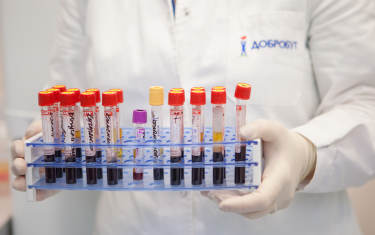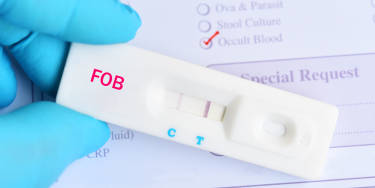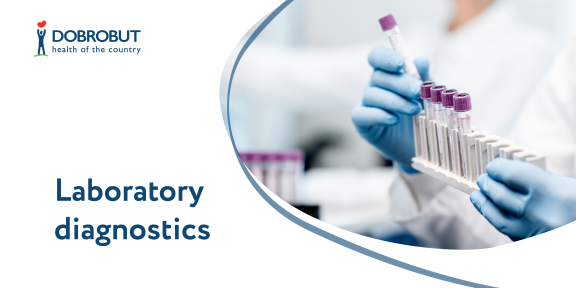Laboratory diagnostics in therapy
Laboratory testing allows obtaining objective data on the patient’s health status, making a diagnosis and prescribing appropriate treatment. It is laboratory examination that is crucial in detecting many diseases.
Based on the results of the laboratory tests, a doctor can:
- confirm or rule out the initial diagnosis;
- determine the severity of the disease;
- monitor the recovery dynamics
The most common laboratory tests prescribed by a doctor for diagnosis in the first place are blood count, biochemical blood panel, blood sugar testing, general urinalysis and coprogram.



Blood count is prescribed to prevent and detect diseases at an early stage, when there are no pronounced symptoms yet.
Blood count provides clinical data on the patient’s overall physical well-being. It allows detecting:
- problems with hematopoiesis;
- acute and chronic inflammatory processes;
- allergic reactions;
- impairments of the body reactive response
Blood count is usually done on an empty stomach.
Biochemical blood panel provides information about the work of internal organs and body systems. It is prescribed for:
- diagnosis of acute and chronic diseases of liver and kidneys;
- getting information about the metabolism of carbohydrates (to detect diabetes mellitus);
- determining the level of lipids (risk of developing atherosclerosis);
- determining the level of glucose, total protein, bilirubin, cholesterol and other blood parameters, which may indicate a potential risk of developing diseases or indicate the existing body processes.
Biochemical blood panel is recommended once in 3-4 years for disease prevention and once a year to monitor development of the chronic disease of internal systems and organs over time. Biochemical blood panel helps determine the treatment effectiveness.
Urinalysis is needed for case follow up and detection of diseases of the kidneys and urinary tract. The results of the urinalysis are helpful for prescribing treatment, while the repeated urinalysis allows assessing its effectiveness.
Coprogram helps detect pathological processes in the digestive system. It is prescribed if a person has any kind of digestive problems. The coprogram gives information about the processes developing inside your body and indicates any disorders in the work of the gastrointestinal tract, liver and gallbladder. Based on the data obtained, the doctor prescribes treatment.
Our services
Our advantages
Our therapists
Choose the nearest clinic to you
ISO certificates



Accreditation certificates



Medical practice licenses











































%402x.png)
%402x.png)
